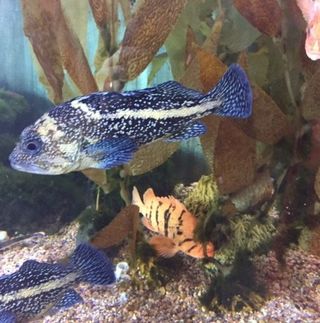Education
Swing Your HIPs
College is all about what you learn while you're busy memorizing stuff.
Posted November 28, 2019
College is an investment—and like any investment, you want to maximize your return. Some students (and professors) I’ve talked with over the years appear to believe that college is nothing more than sitting through enough courses before they hand you a diploma. (These days, students and faculty can sit in separate rooms, at separate times! But don’t get me started about online courses—that’s for another time.) However, there is more to college than “seat time.”
Many researchers have asked employers what they look for in college graduates (e.g., Watson & McConnell, 2018). They publish all kinds of charts that list the skills and characteristics of the people they hire. Some even have information about why employees are fired—so this is about getting and keeping a job. (Graduate and professional schools, by the way, look for very similar characteristics in their applicants—along with indicators like GPA.)
There is no secret about what folks are looking for—and you don’t even have to read the charts. If you want to know what employers (and graduate schools, and medical schools, and law schools) want in their applicants, just listen to what students (you? your friends?) often complain about:
- Why do I have to go to class? Why do I have to show up on time?
- Why do I have to turn in assignments? Why do I have to submit stuff on time?
- Why do I have to write papers? Why do I have to revise them?
- This isn’t an English course. Why do I have to follow all those grammar, punctuation, and style rules?
- Why can’t professors just fix my mistakes?
- Why do I have to come up with my own paper topics? Why can’t somebody just tell me?
- Why do I have to give oral presentations?
- Why can’t I just cut and paste information from the internet into my reports? Why do I have to cite my sources?
- Why do I have to think about real-world problems? Why can’t I just memorize what you want me to?
- Why do I have to think critically? Why can’t the professor just tell me what’s important?
- Why do I have to do research?
- Why do I need evidence from others to support my arguments? I know what I see. My opinion is just as good as anybody else’s.
- Why do I have to work by myself?
- Why do I have to work in teams?
- Why can’t you just tell me what I have to do for tomorrow? Why do I have to read the syllabus and figure out what to do from that?
- Just tell me what you want me to do.
Get the idea? These are the very things that employers want! Lots of employers don’t even care about what your major is! In fact, colleges have been spending a lot of time and effort trying to help students get the most out of their investment by working more explicitly on these skills. There’s a ton of information on how to facilitate the learning process within courses, including better lecturing, active/collaborative strategies, using writing to help students learn and think (e.g., Svinicki & McKeachie, 2014), and helping create an inclusive classroom environment (e.g., Tanner, 2013).

Colleges have also been recognizing other important ways to help students—these are called “high-impact practices,” or HIPs (Kuh, 2008). Here are 11 HIPs that lots of people agree can be effective (Kuh & O’Donnell, 2013):
- First-year seminars and experiences. These experiences focus, at least in part, on easing the transition to college and teaching students some of those basic skills they need—to stay in college, to graduate, to get into graduate school or a job, to get out of graduate school or to keep a job, etc. I think first-year seminars are, by far, the most important HIPs ever invented. Oh, by the way, did I mention that I teach a first-year seminar?
- Common intellectual experiences. These may look like general education requirements, but they also take other forms, like a series of courses connected by broad themes or societal questions.
- Learning communities. In its simplest form: A group of students takes two or more related courses together. These are unbelievably wonderful—the best thing ever to help students… Yeah, I teach in a learning community, too.
- Writing-intensive courses. The better students think, the better they can write, and vice versa. My preference is for lots of short papers.
- Collaborative assignments and projects. Yep, lots of work today occurs in teams.
- Undergraduate research. Solving problems, working collaboratively, applying skills and information—what’s not to like?
- Diversity/global learning. Kuh (2008) notes: “Frequently, intercultural studies are augmented by experiential learning in the community and/or by study abroad.”
- Internships. Talk about investments! There are data to suggest that students who do internships make lots more money in their first jobs out of college.
- Capstone courses and projects. Yes, you still have to take courses in college, but why not do some serious reflecting on what all those courses meant, and or how they relate to what comes next?
- Service learning, community-based learning. I’m running out of good things to say about all this!
Do any of these experiences ring a bell for you? Which ones did you have in college? Were they as good for you as the research shows they are for others? Which ones do you wish you had? If you are a student now, which one(s) may I convince you to explore?
References
Kuh, George D. (2008). High-impact educational practices: What they are, who has access to them, and why they matter. Washington, DC: AAC&U.
Kuh, G. D., & O’Donnell, K. (2013). Ensuring quality and taking high-impact practices to scale. Washington, DC: Association of American Colleges and Universities.
Svinicki, M., & McKeachie, W. (2014). McKeachie’s teaching tips: Strategies, research, and theory for college and university teachers (14th ed.). Belmont, CA: Wadsworth, Cengage Learning.
Tanner, K. D. (2013). Structure matters: Twenty-one teaching strategies to promote student engagement and cultivate classroom equity. CBE-Life Sciences Education, 12, 322-331.
Watson, C. E., & McConnell, K. D. (2018, Fall). What really matters for employment? Liberal Education. Retrieved from https://www.aacu.org/liberaleducation/2018/fall/watson_mcconnell.


